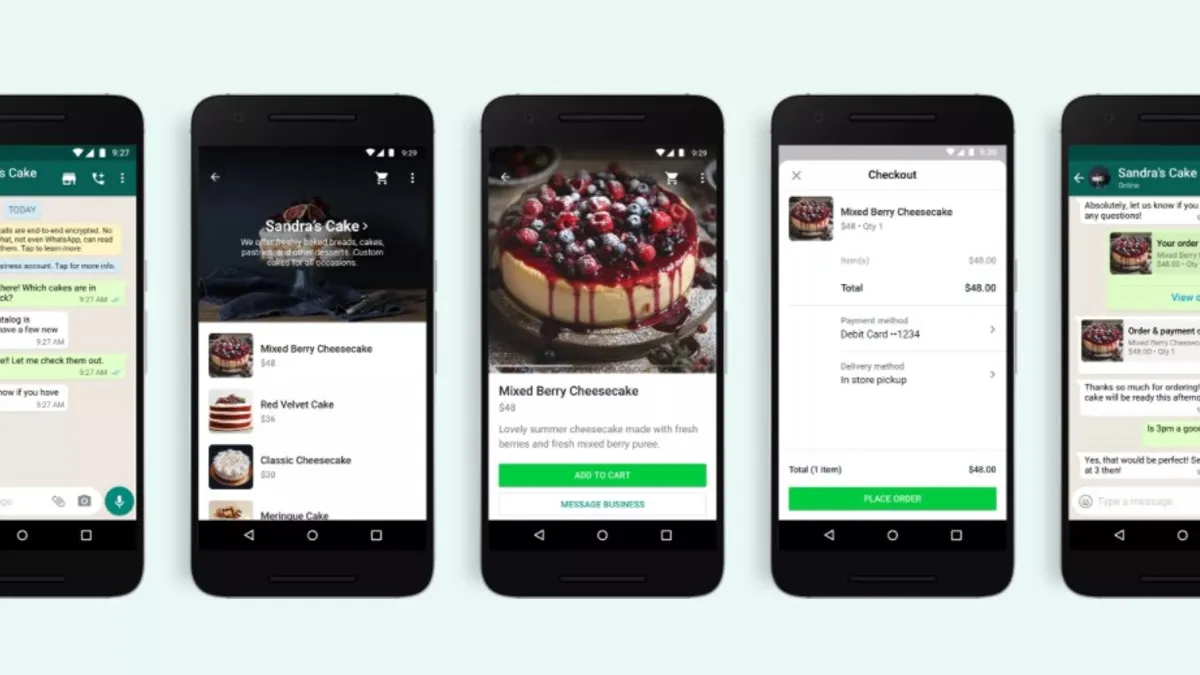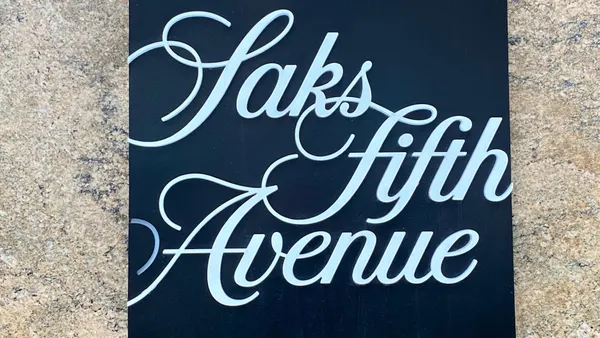Brief:
-
WhatsApp will begin offering in-app purchases as millions of people rely on the Facebook-owned messaging app to communicate with businesses, according to a company blog post. The platform is at the same time making a concentrated push to offer cloud-hosting services.
-
WhatsApp will expand ways for app users to check out products for sale in Facebook Shops, the social network's online storefronts, and buy items directly from a chat. WhatsApp also plans to make it easier for businesses to integrate in-app shopping with their existing commerce and customer solutions. The features will be available this year, WhatsApp COO Matt Idema said in an interview with Reuters.
-
WhatsApp also plans to let businesses manage their messages through hosting services that Facebook plans to offer, while expanding its partnerships with third-party vendors of software and services. The development falls in line with Facebook's push to establish a bigger e-commerce footprint, a strategy that's accelerated under the coronavirus pandemic.
Insight:
WhatsApp plans to offer more in-app shopping features and hosting services from Facebook to help smaller companies upgrade their mobile marketing and e-commerce efforts. With many consumers avoiding physical stores during the pandemic, those businesses need ways to stay in touch with customers through their smartphones, including services like buy online, pickup at curbside that limit personal contact.
"Many of the old ways in which people and businesses communicate are not working," WhatsApp said in its blog. "The global pandemic has made clear that businesses need fast and efficient ways to service their customers and make sales."
The popularity of WhatsApp has made the app an important channel for small business marketers to connect with consumers. More than 175 million people a day send a message to an account on WhatsApp Business, the app's service for enterprises, per data shared by the platform.
The new hosting services aim to help small- and medium-sized businesses start selling products, maintain inventory records and give employees the tools to quickly respond to messages from any location. WhatsApp plans to charge businesses for some of the services, per the blog post.
It's too early to tell whether WhatsApp's expanded services will have a significant effect on the holiday shopping season, given that the timing is uncertain and many businesses are likely more focused on other preparations. However, online shopping has become more popular during the pandemic, which has led Facebook to introduce more e-commerce tools across its services, including its core social network and Instagram.
The portion of consumers in the U.S. and Europe who said they shop online weekly grew to 36% in July from 28% before the pandemic, according to a Selligent study cited by Digital Commerce 360. Consumers are also spending more time on mobile messaging apps to stay connected with others during the pandemic. The average amount of time that U.S. adults spend on mobile messaging apps will grow 20% to 24 minutes a day in 2020, with increased engagement on Facebook Messenger, WhatsApp and Apple iMessage, researcher eMarketer forecast.
Since the onset of the pandemic, Facebook has prioritized services for small businesses that make up most of the company's 8 million advertisers worldwide. In May, the company started letting small businesses set up free online storefronts with Facebook Shops, and provided a way to tag products shown in Facebook and Instagram livestreams to product pages.
Facebook this week also announced early results from tests of an update for its Messenger app that promises to help businesses manage consumer communications through Instagram at scale. Adidas, H&M, Michael Kors and Sephora were among the brands that started testing the new application programming interface for Messenger. The update lets businesses integrate Facebook Shops with Instagram messaging. Instagram has started testing shopping features to Reels and IGTV, and in July debuted Instagram Shop as a hub for personalized recommendations, exclusive items and collections of products from brands and creators.
For Facebook, the expanded features for WhatsApp are a way to monetize the app after acquiring it in 2014 for $19 billion. By charging fees to businesses that use its services, WhatsApp can generate revenue and support Facebook's broader push into e-commerce. Amid growing competition from retailers like Amazon, Best Buy, CVS Pharmacy, Target and Walmart that are now selling advertising to help marketers reach high-intent shoppers, Facebook's main source of revenue faces additional threats.













